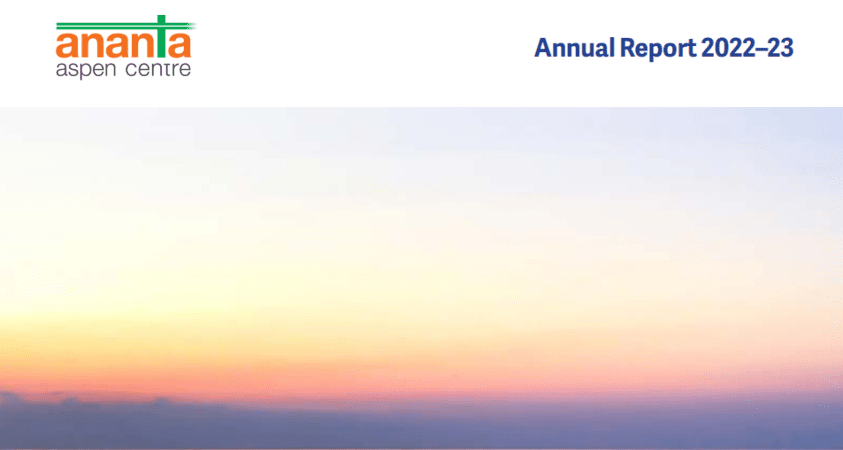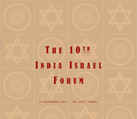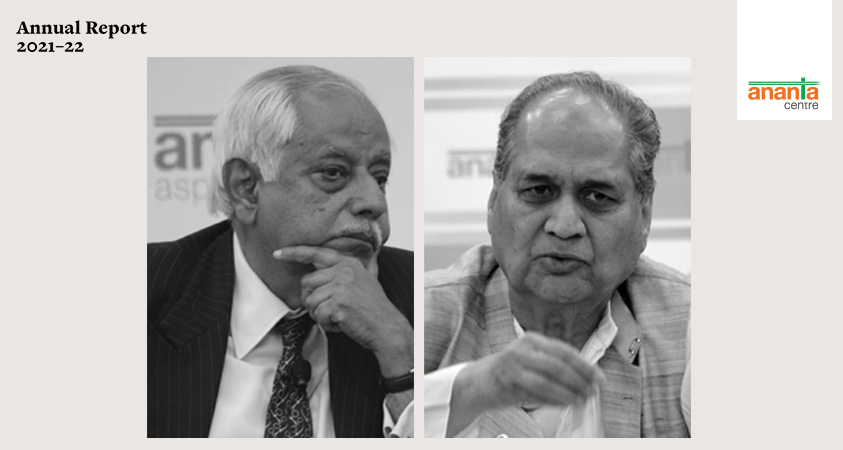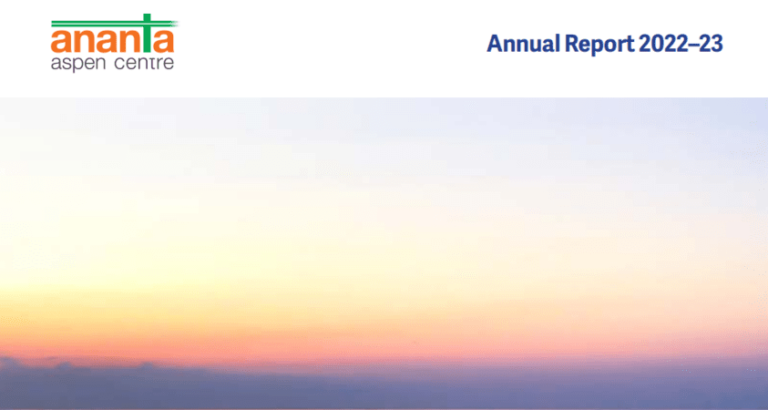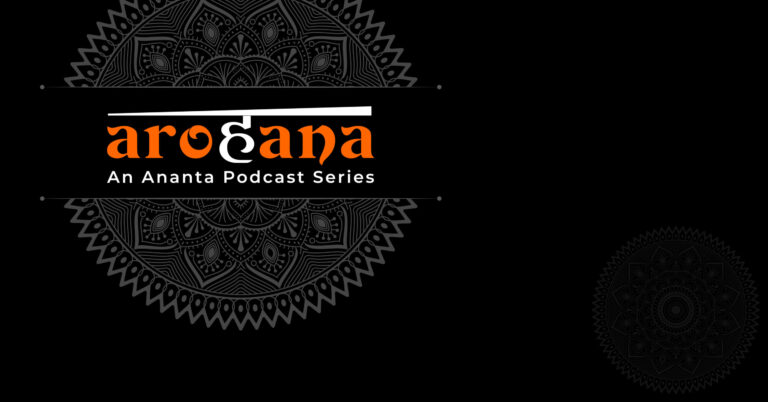Webinar Blog
While the Indian economy is still recovering from the damages caused by COVID-19, the direction of India’s trade policy and where it is headed is an important factor to assess. While India has done well in terms of exports, its policies are increasingly appearing to be protectionist. Against this backdrop, the Ananta Centre hosted a digital session on “Assessing the Direction of India’s Trade Policy” moderated by Mr. A K Bhattacharya, Distinguished Fellow, Ananta Centre, Editorial Director, Business Standard. The panel included Professor (Dr.) Amita Batra, Professor of Economics, Centre for South Asian Studies, School of International Studies, JNU, Ambassador (Dr.) Mohan Kumar, Chairman, Research and Information System for Developing Countries (RIS), and Dr. Naushad Forbes, Co-Chairman Forbes Marshall, and Chairman Ananta Aspen Centre.
The session covered a wide range of topics, including export performance, the future of free trade agreements (FTAs), and the overall trajectory and direction of India’s trade policies. Regarding India’s exports, which have been increasing exponentially but decreasing in recent months, the belief is that these exports are not sustainable in the long term because the surge is due to the pandemic and the high prices of Indian commodities. As a result, this is not a realistic option in the medium to long term. More crucially, India’s export basket must be considered in this context.
Over the last decade or so, a trend has developed in which traditional trade has taken a back seat to value-chain trade in the global trade market. However, in the pre-Covid picture, India was not among the top 10 countries excelling in the area of manufacturing exports. India’s participation in supply chains has been minimal and India has performed poorly in terms of competitiveness, as measured by the global indices of export performance and market share.
In terms of Most Favored Nation (MFN) tariffs, it was found that the average applied MFN tariff has declined globally. However, in India, it has actually increased. Nonetheless, the share of MFN trade in international trade is gradually declining and trade is no longer carried out on the basis of MFN, but rather on the basis of FTAs.
Other key topics of discussion included the ‘Ease of Doing Business’ and FTA participation. While India is engaging in partnerships with other nations, they are all relatively limited in scope and comparison, because other countries are moving quickly and entering into extensive trade agreements and investment services. Hence, from that standpoint, India should explore entering FTAs, cutting tariffs, and allowing more inputs to enter the market.
An optimistic response to this would be that India has used the tariff slack to protect itself from its trading partners, but also that the government needed revenue in the Covid year. Therefore, it is necessary to note that revenue considerations may have played a part here, and the move was not solely protectionist. Having said that, India is essentially uncompetitive in comparison to other countries.
To establish an overall conclusion, the discussion focused on whether the time has come for India to create a centralized body for overall trade policy. While it was agreed that India needed an institution solely devoted to trade, this would never be viable in India. Hence, alternative approaches and institutional deepening must be considered for the same.
Watch the full session here:-





















